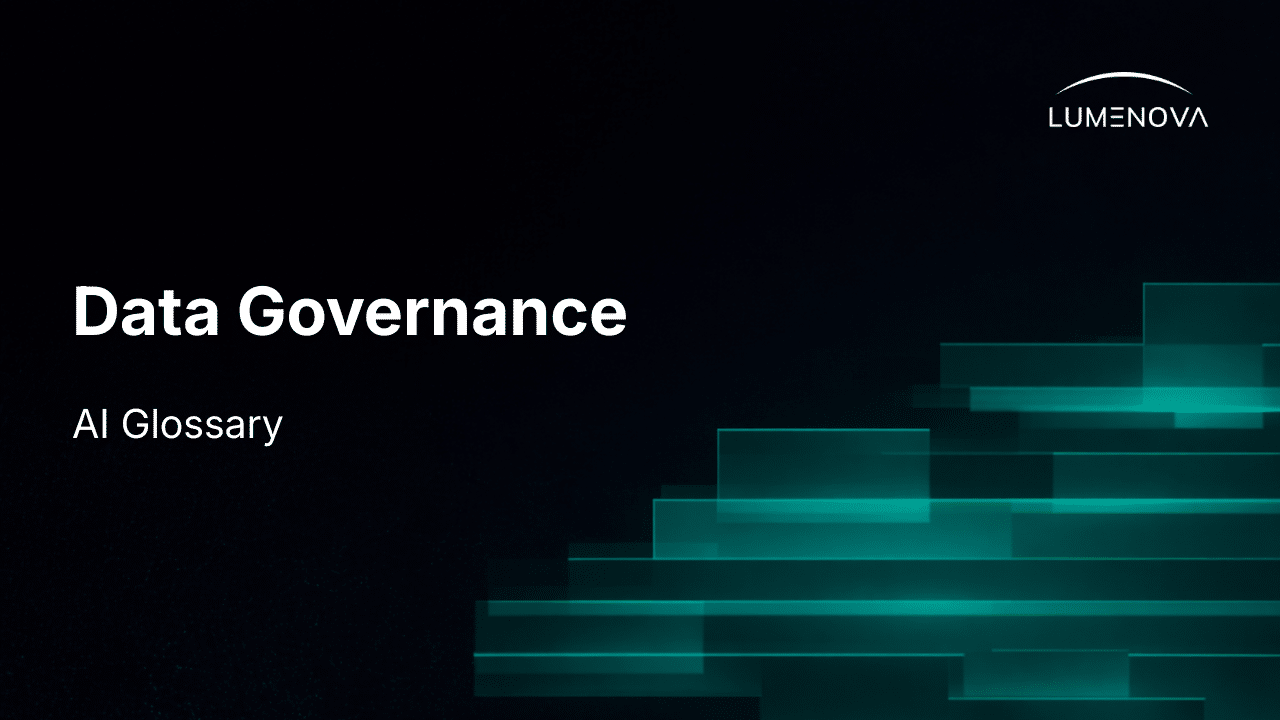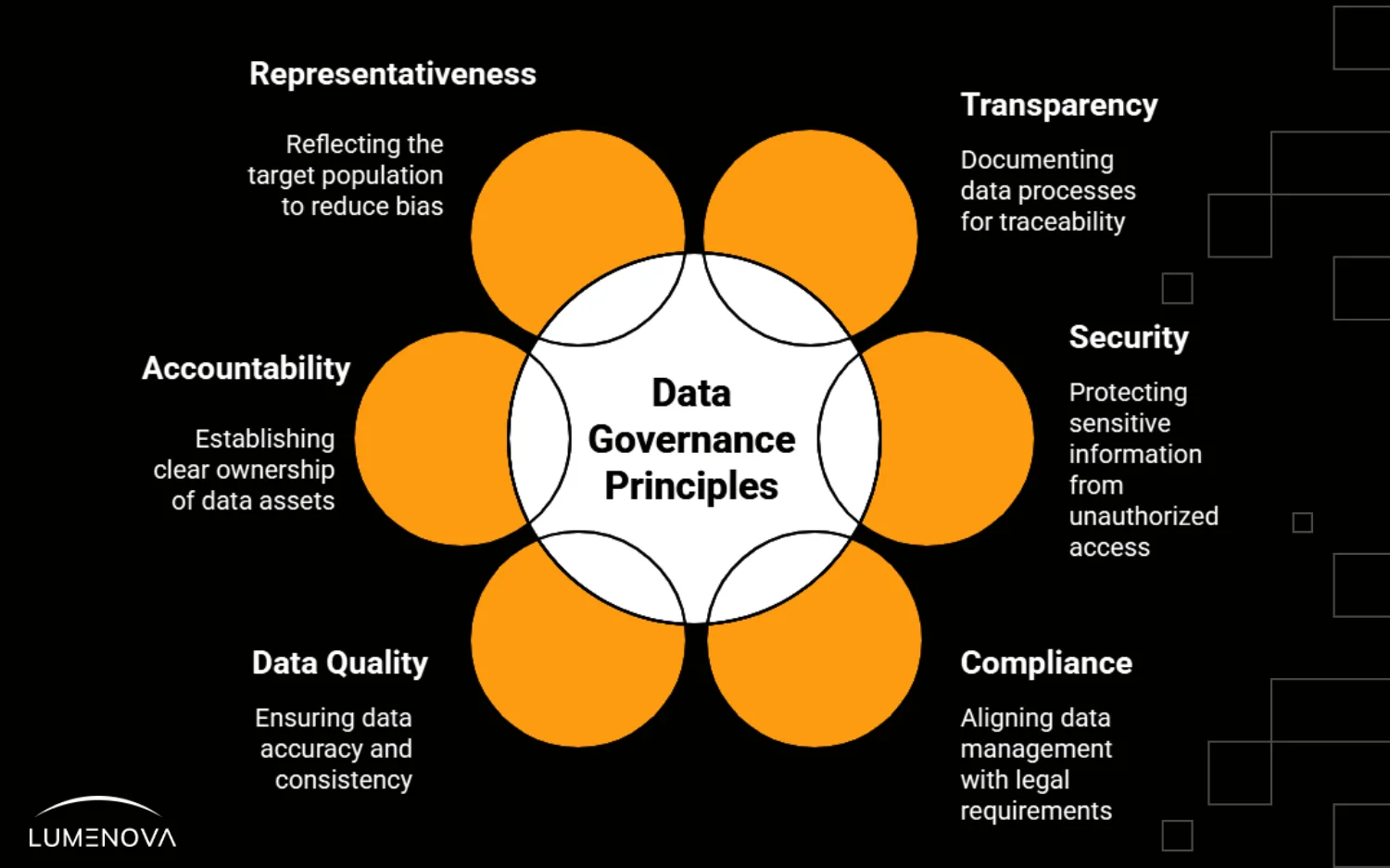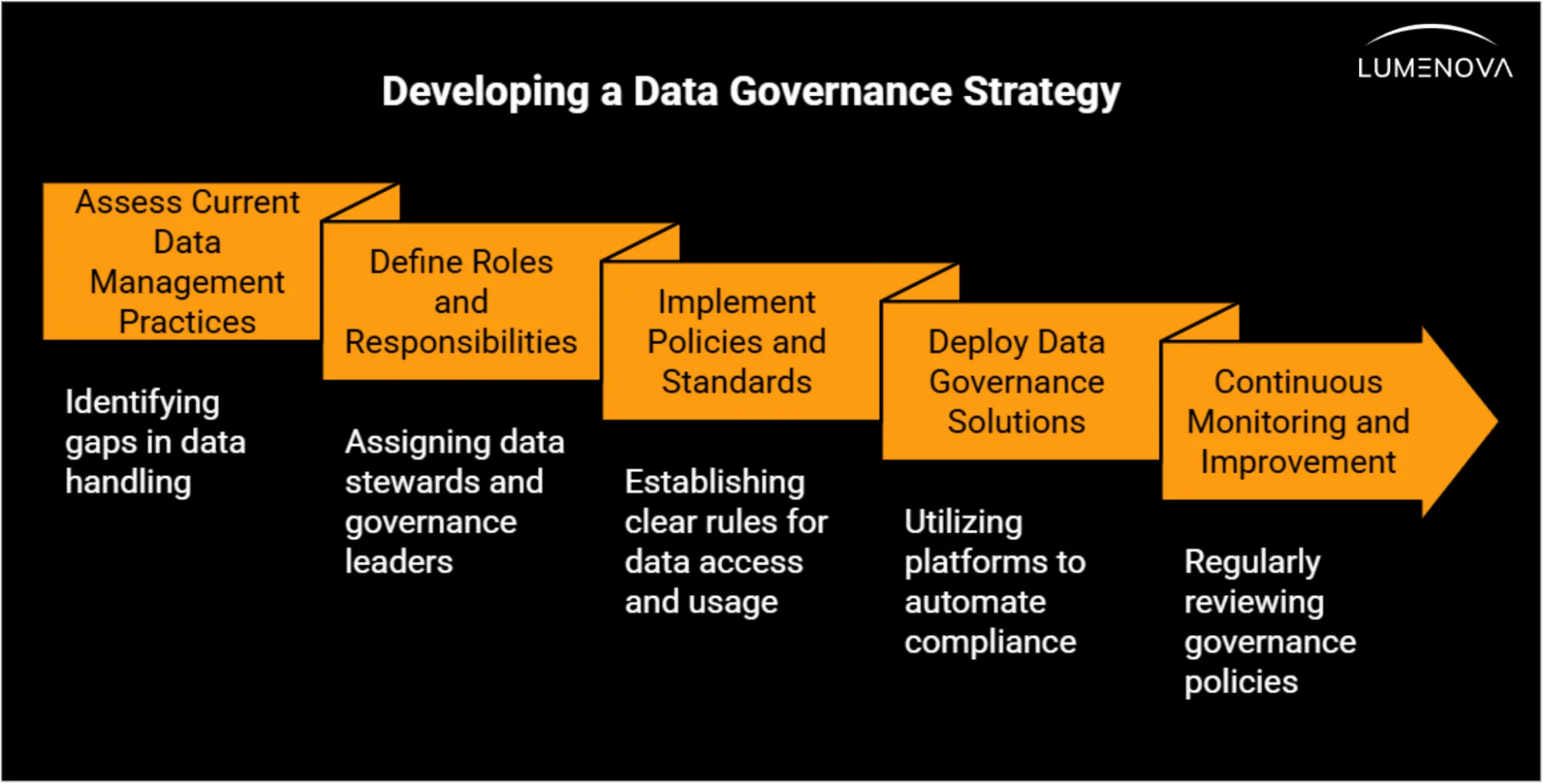Data Governance

What is Data Governance?
The concept refers to the framework, policies, and procedures that ensure the effective management, security, and integrity of data within an organization. It defines how data is collected, stored, accessed, and used to support business objectives while ensuring compliance with regulations and industry standards.
Importance
Effective governance is essential for organizations to maintain data transparency, accuracy, fairness, security, and accessibility. A strong strategy enhances decision-making, reduces risks (e.g., bias), and improves operational efficiency. As companies increasingly rely on data-driven insights, implementing enterprise data governance ensures consistency across all departments and systems.
Key Principles
Organizations must adhere to core data governance principles to establish a strong foundation:

1. Transparency: Documenting data processes to improve traceability.
2. Security: Protecting sensitive information from unauthorized access.
3. Compliance: Aligning data management with legal and regulatory requirements.
4. Quality: Ensuring data is accurate, consistent, and up-to-date.
5. Accountability: Clear ownership of data assets across departments.
6. Representativeness: Dataset reflects the target population, reducing bias.
Developing a Data Governance Strategy
A well-defined data governance plan helps businesses align their data initiatives with strategic goals. The process includes:

- Assessing Current Data Management Practices – Identifying gaps in data handling.
- Defining Roles & Responsibilities – Assigning data stewards and governance leaders.
- Implementing Policies and Standards – Establishing clear rules for data access and usage.
- Deploying Solutions – Utilizing governance platforms to automate and monitor compliance.
- Continuous Monitoring and Improvement – Regularly reviewing governance policies to adapt to evolving business needs.
AI and Data Governance
With the rise of AI, governance has become a crucial component of modern data strategies. AI enhances automation, detects anomalies, and enforces compliance through advanced algorithms. Companies implementing AI data governance frameworks benefit from:
- Improved data classification and tagging.
- Enhanced risk detection and mitigation.
- Automated policy enforcement and auditing.
- Less biased and more generalizable data.
The integration of generative AI introduces both opportunities and challenges. AI-driven content generation requires strict governance controls to ensure:
- Ethical AI deployment in data-driven applications.
- Protection of proprietary and sensitive data.
- Compliance with global data regulations.
- Secure data pipelines and transmission.
Best Practices
To establish effective data access governance, organizations should follow these best practices:
- Standardized Data Policies: Develop consistent policies for data handling.
- Cross-Department Collaboration: Involve IT, compliance, and business teams in governance efforts.
- Advanced Solutions: Use RAI platforms to automate compliance.
- Regular Audits: Conduct periodic assessments to identify and resolve governance issues.
Examples
Leading governance companies implement robust governance models to drive efficiency. Some notable examples include:
- Financial institutions enforcing strict data access policies to prevent fraud.
- Healthcare organizations ensuring patient data privacy and compliance.
- Enterprises leveraging AI to improve data accuracy and security.
Conclusion
A strong data governance process ensures that organizations can manage data effectively while maintaining security, compliance, and operational efficiency. By leveraging data and AI governance, businesses can enhance data integrity, reduce risks, and drive innovation through AI-driven frameworks. As data continues to grow in volume and complexity, having a strategic governance approach is essential for long-term success.
Frequently Asked Questions
Data governance represents the framework of policies, procedures, and standards that govern how data is collected, stored, processed, and shared within an organization. It is essential for ensuring data integrity, privacy, security, and compliance with regulations. Effective data governance enhances decision-making, reduces risks, and improves operational efficiency.
A well-executed data governance strategy can have a significant impact on profitability by improving data accuracy, streamlining operations, and reducing costly errors. Ensuring data consistency across departments leads to more informed business decisions and enhanced operational efficiency.
AI is becoming increasingly important in data governance by enhancing automation, detecting anomalies, and enforcing compliance through advanced algorithms. AI-driven data governance improves data classification, enhances risk detection, and automates policy enforcement and auditing, making governance processes more efficient and effective.
Best practices include developing standardized data policies, fostering cross-department collaboration, utilizing advanced data governance solutions, and conducting regular audits. Clearly defining roles and responsibilities, such as assigning data stewards and governance leaders, is also essential for successful implementation.
The integration of generative AI and data governance presents both opportunities and challenges. Strict governance controls are required to ensure ethical AI deployment, protect proprietary and sensitive data, and comply with global data regulations. This is particularly important as AI-driven content generation becomes more prevalent in business operations.
Examples include financial institutions enforcing strict data access policies to prevent fraud, healthcare organizations ensuring patient data privacy and compliance, and enterprises leveraging AI for data governance to improve data accuracy and security.
Policies should be reviewed regularly to align with evolving business needs, technological advancements, and regulatory changes. Ongoing monitoring and adaptation ensure that data governance remains effective and continues to support organizational goals.